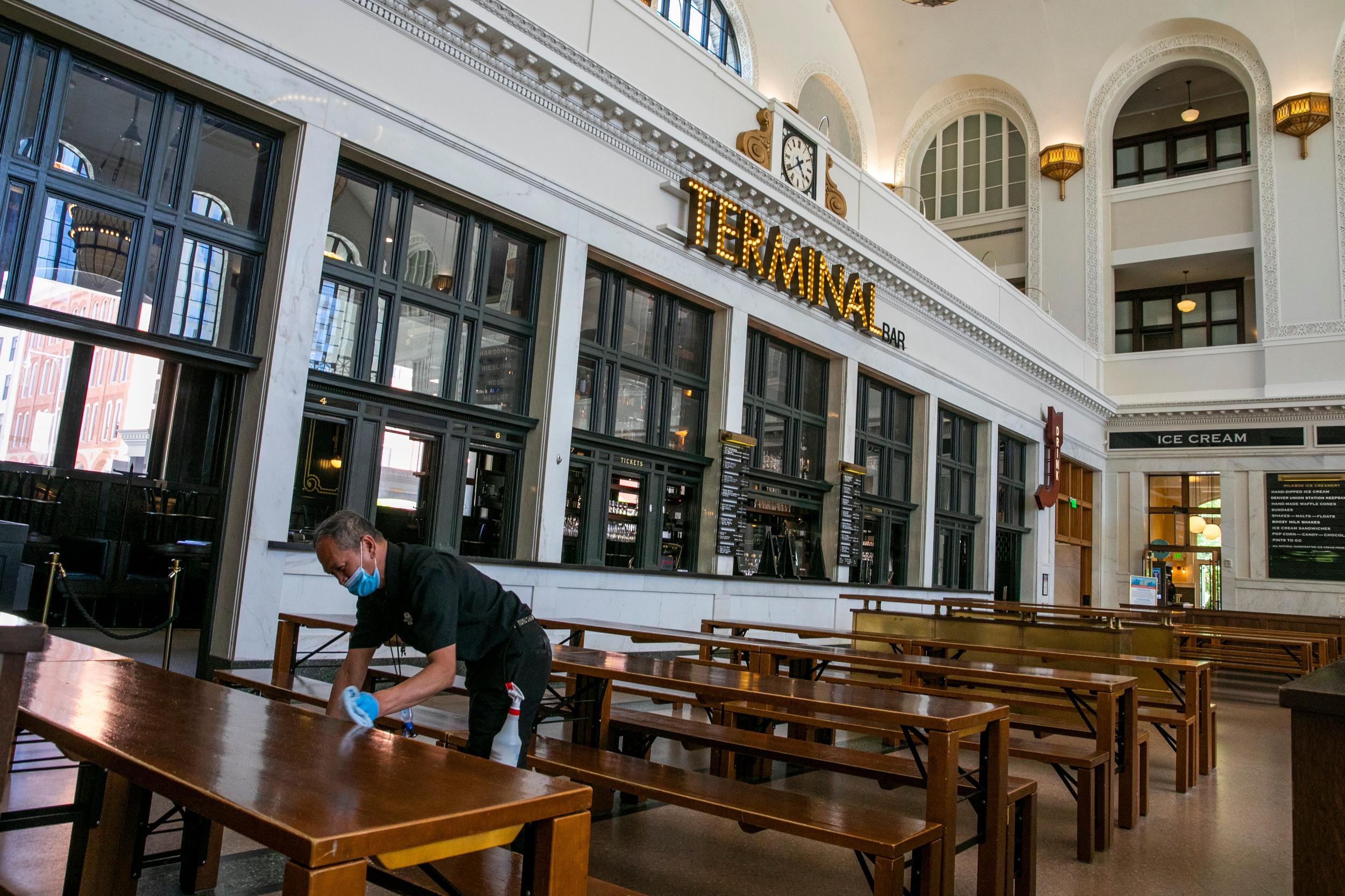
While Gov. Jared Polis is allowing Colorado restaurants to reopen in the final week of May, it’s too late for many restaurants that the Colorado Restaurant Association said have already closed permanently.
More are likely to follow, the organization said, citing new requirements that restaurants operate at 50 percent capacity and to not exceed 50 customers.
The new safety guidelines require workers to wear masks and customers and staff to social distance. Tables must be spaced at least six feet apart and sanitized between parties. Even so, concerns over health and worries about cash flow are tempering eagerness to reopen.
“I think we're not going to see the type of business that we saw prior to COVID,” said Sonia Riggs, president of the restaurant association. “I've talked with far more restaurateurs, they're saying, ‘Listen, we didn't set our business model to open at a limited capacity. We set up our business model to open at a hundred percent.’”
Judy Allen, the owner of El Taco Rey, a Mexican restaurant in Colorado Springs, said the six-foot restriction on table spacing will stall any decision to fully reopen.
“Our business is very small,” Allen said. “We are going to have to stay open just for takeout because we just don’t have the space for [in-person dining], so we are going to have to stay strictly takeout.”
Denver chef and restaurateur Alex Seidel doesn’t plan to close his four restaurants, but he said he will delay their full reopening.
“We just don’t have the money in our accounts to drain on labor to open up at 50 percent capacity,” Seidel said. “I’ve been encouraged by some other states, they are trending quicker toward 100 percent than I anticipated, so that is good to see.”
If a restaurant decides to reopen, it must rehire staff. Some of the waitstaff are reluctant to return to their old jobs.
"It's still a little scary to think about,” said Whitney Page, a server at Recess Beer Garden in Denver. “Before we even closed down, it was just insanity in there.”
- Colorado Restaurants Can Reopen For In-Person Dining May 27
- Reopening At A Limited Capacity Would Still Permanently Shutter Many Colorado Restaurants, Owners Say
- Read The Requirements Restaurants That Reopen Must Follow
- In Denver, At Least 375 Restaurants Have Applied For The City's Patio Extension Program
Page said the beer garden is especially packed during the summer, and she worries about exposing herself and her parents to coronavirus as restaurants reopen.
“Hearing about all of these different things happening with other places — reopening their economy and restaurants — I mean, I have parents who live here … It's hard to know exactly what limits and what things I want to place upon me returning to work,” Page said.
When Polis issued an order to close restaurants for on-premises dining on March 17, tens of thousands of restaurant employees were laid off, and many have not been back to work for months.
Negean Mohi, a first-generation American who works at Safta, an Israeli restaurant in Denver, was furloughed and lost half of her income. She’s back at work now because Safta is doing takeout, which is allowed under Polis’s March order, along with delivery and drive-through service.
“It was kind of like a whole bunch of fear,” Mohi said about being furloughed. “But at the same time I just can’t even begin to think about how many people are just like one paycheck away from being homeless at this point. So for me, I just kind of count myself lucky. Even though this is probably the worst time of my life I still just consider myself really lucky.”
With restaurants set to reopen May 27, and attention turning to ensuring customers and workers stay healthy, Riggs of the Colorado Restaurant Association asks the general public to support the state’s restaurant industry.
“We're certainly hoping people will be generous. We have seen some remarkable cases of generosity during the full closure,” she said. “The bigger concern here is that if we're not having customers come back to the capacity that they were before, that's where we may see reduced tips and frankly reduced staffing levels. People are not going to be rehiring like they were if they don't have the business and they don't have the capacity, they're not going to be able to bring as many people back.”









